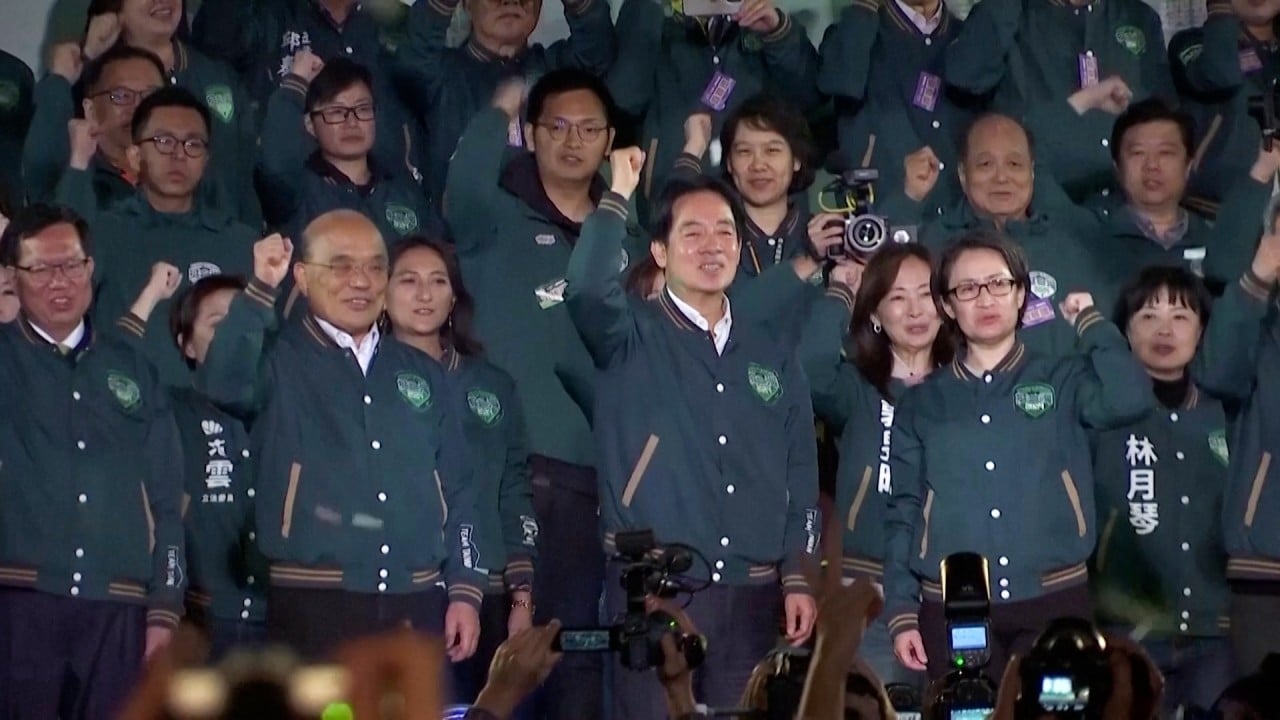
Taiwan has a new leader but Beijing’s red line still the same
- The new DPP administration under William Lai – and even the United States – must realise that it is in everyone’s interest to adhere to the one-China principle
The result of Taiwan’s election was expected, but it still set precedents. It gives the independence-leaning Democratic Progressive Party (DPP) an unprecedented third term in the presidential office; it is the first time in 16 years that no party has commanded an absolute majority in the legislature; and the first time a third party has held the balance of power.
The Taiwan People’s Party (TPP) has become a critical minority. This will shape boundaries within which president-elect William Lai Ching-te will govern. He will rely on the TPP to help pass legislation.
By the same token, the opposition Kuomintang (KMT) will also need TPP support to block government legislation. This would mainly involve domestic issues, but would also deter the DPP from proposing further anti-Beijing policies.
A high voter turnout flags concern with the island’s future. The fragmentation of Taiwanese politics has become more apparent, with Lai taking 40 per cent of the vote against about 33 per cent for the KMT’s Hou Yu-ih and more than 25 per cent for the TPP’s Koh Wen-je.
Lai won despite Beijing’s warning about the DPP’s independence stance. But the loss of a majority in the legislative yuan will be challenging.
It is a reminder that ideology still influences many Taiwanese, concerned with safeguarding their identity amid an anti-mainland narrative.
Although the outgoing president, Tsai Ing-wen, is considered relatively moderate compared with Lai, cross-strait relations deteriorated to a new low during her eight years in office after her refusal to recognise the one-China principle.
Lai has a deep background in the pro-independence pan-Green camp. The concern is that even if he, too, becomes pragmatic and works across party lines as he has promised, there are people around him who may push a different agenda.
That will certainly bring new uncertainties over the Taiwan Strait and lead to further political fragmentation.
Communist Party must ‘win the hearts’ of Hong Kong, Macau and Taiwan people: Xi
Lai is expected to make clear his official position on the one-China principle in his inauguration speech in May.
An election year in the US adds to the uncertainty since Taiwan is a key factor in China-US relations. The fact Beijing sent top diplomat Liu Jianchao to the US a week ahead of the Taiwan election spoke volumes.
Reactions from the US and Europe suggest they do not recognise Taiwan independence. But Washington will continue to test Beijing’s patience.
Sending ex-officials to Taipei to congratulate the newly elected government is a clear sign the US will continue arming Taiwan, but at least the Biden White House understands the severe consequences of open support for Taiwan independence.
The risk of open military conflict is still manageable. Beijing has made it clear where its red line is. It is in everyone’s interests, especially Lai and the DPP, to respect it.


